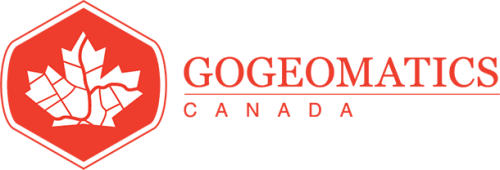GIS Training Approaches with Scott Bell
GIS training and teaching is a fascinating endeavor. Undergraduate classes are a mélange of students from disciplines that span the University curriculum. Graduate training is usually highly focused on task-specific outcomes, while professional training can include people interested in “generalist” GIS training or very specific and deep content that will allow an already employed GIS user to transition from one type of position to another. There are a few dichotomous aspects to the field of GIS education that I think are useful to consider. One is the Individual GIS user and the embedded expert in a larger GIS team. The other is the task specific GIS user (the breadth of this specificity will be discussed below) and generalist. Interestingly, even within each of these groups there is variety, depth, and nuance.
My GIS training background includes training at a variety of levels and styles. I teach undergraduate introductory classes with 150 students attending lectures and completing practical/experiential labs over the course of a 13-week semester. This type of course includes an equal mix of theory and practice. I have also taught smaller advanced undergraduate classes in GIS and cartography with a sharper focus on skill development and application. At the graduate level I teach semester long classes and more intense 2-week (full-time) courses (that I call Institutes). All graduate training is accomplished with students and researchers who have research of their own into which they want to integrate GIS. Participants in such training have specific research needs and consume the introductory material quickly to establish a foundation from which they can build the technical skills necessary to accomplish their goals. Once their training is complete, they represent independent GIS users with relatively specific skills built on a set of general skills necessary to support their needs (geodesy, cartography, data management, etc.), but are unlikely to be flexible to serve them beyond their research needs (in the short term).
The graduates of our undergraduate program at the U of Saskatchewan use their GIS skills to market themselves as well-rounded disciplinary experts; we do not offer a graduate or professional degree in GIS. However, we have developed both a minor and specialization in GIS and are in the process of implementing a GIS Certificate that can be imbedded in a traditional degree or taken independently. Graduating with expertise and experience with GIS enhances a student’s employment potential, it does not prepare them to be a GIS analyst, programmer, or other GIS specific expert within a larger GIS group. Such training requires a curriculum that is simultaneously broader and deeper than what can be offered within a traditional geography department that doesn’t have a well developed GIS stream. This represents the first of my two dichotomous comparisons in GIS training, that between developing generalists vs. specialists. The former can integrate GIS, spatial thinking, and spatial analysis in a variety of settings while the latter are experts in a subset of GIS use: Database Manager, Analyst, Field Technician, Cartographer, etc. The ideal learning outcomes for such GIS experts would be several courses within the area of expertise and ample training across other aspects of GIS to ensure they can work with a team including such experts.
Both of the above training approaches are suitable for a person intent on integrating GIS into a broad suite of professional skills, knowledge, and values. It is less appropriate for producing GIS experts interested in specific roles within a GIS team. This includes database developers/managers, analysts, field technicians, programmers, cartographers, etc. Such individuals require much more training than can be offered by a GIS program offered in another academic unit (geography, planning, geoscience, geology, etc.) and needs to be comprehensive enough to achieve goals that can only be met with department-like units of multiple faculty/trainers/staff. Often such programs are offered alongside graduate programs in cognate disciplines; good examples are located at the University of Calgary and Pennsylvania State University. Each leverages pre-existing strengths in Geography, Geomatics, and Earth Science. This provides administrative, scholarly, and infrastructure benefits.
All GIS training serves to develop the skills, knowledge, and/or values necessary to appropriately and effectively benefit from a spatial perspective. Employers need employees with different backgrounds in GIS; they need programmers, cartographers, and database experts. Furthermore, they need project and senior managers who can deploy resources and themselves understand the place for spatial data and GIS expertize. Despite having the capacity to train users of GIS, an area less well developed is the development of senior management level expertize in GIS and spatial thinking. I am not aware of such programs, at either the professional Master’s level or shorter workshop or seminar training that can prepare management professionals to oversee the inevitable spread of GIS and spatial data in todays industrial, public, and institutional environments.






This is an interesting article because I think it touches on some issues between the colleges and universities teaching geospatial sciences in Canada. There’s such a mix out there of colleges offering post graduate diplomas and after high-school programs, but then you also have the universities offering these specializations in geomatics and GIS. How are these institutions deciding what programs to offer and curriculum. Are they talking to each other? Is there a committee of all these programs or a conference? It seems like they talk to industry but I don’t get a feeling there’s a comprehensive across the board approach to teaching geomatics in Canada.
Interesting. I wonder if there is room for a sort of system like the US has. Well, it’s actually two fold: There is the UCGIS (University Consortium for GI Science)and the GeoTech group with is community college based (they are on Linkedin as well). We do have a GIScience group in the CAG and there are numerous associations out there that speak to the questions we see in the broad area of spatial education and learning (k-grey). To raise profile and to make coordination better it may be time for some sort of consortial approach between and among the various groups with a direct interest in the spatial education world. I promised Jon and others I would post about this, and I will. For now, just trying to see if a comment might touch a common cord of agreement or disagreement. But it is good to see Scott Bell is doing what he is doing – he’s another key person in the spatial education sector!
We are all looking forward to your article James as well as one from Mike Sawada at U of O in this area.
I wonder if something could be put together to bring GIS educators together in Canada would be useful? Like a conference?
A specific point on teaching in this area… I have always wondered if educators are talking and teaching about the CGDI? The standards and interoperability in particular. Would that be useful? I think it would be. If we could teach that or make it part of the lives of GIS professionals right from day one I think that would go a long way to supporting standards and seeing them taken up across the board in Canada.
My main focus is GIS in k12. I watched a news item on TGV about a Skills Canada workshop held here in Newfoundland for junior high students. Is there is any involvement of the GIS community with Skills Canada at the national level? I know that in some provinces (Manitoba) there is high school participation in a Skills Canada GIS competition. Most of the kids in the interview were talking about science, engineering, and robotics. The national rep spoke hosting sessions on web design. If GIS in the schools is inconsistent, and there aren’t enough schools in a province to compete in Skills Canada, can we start a program for community GIS professionals to offer sessions at provincial workshops?